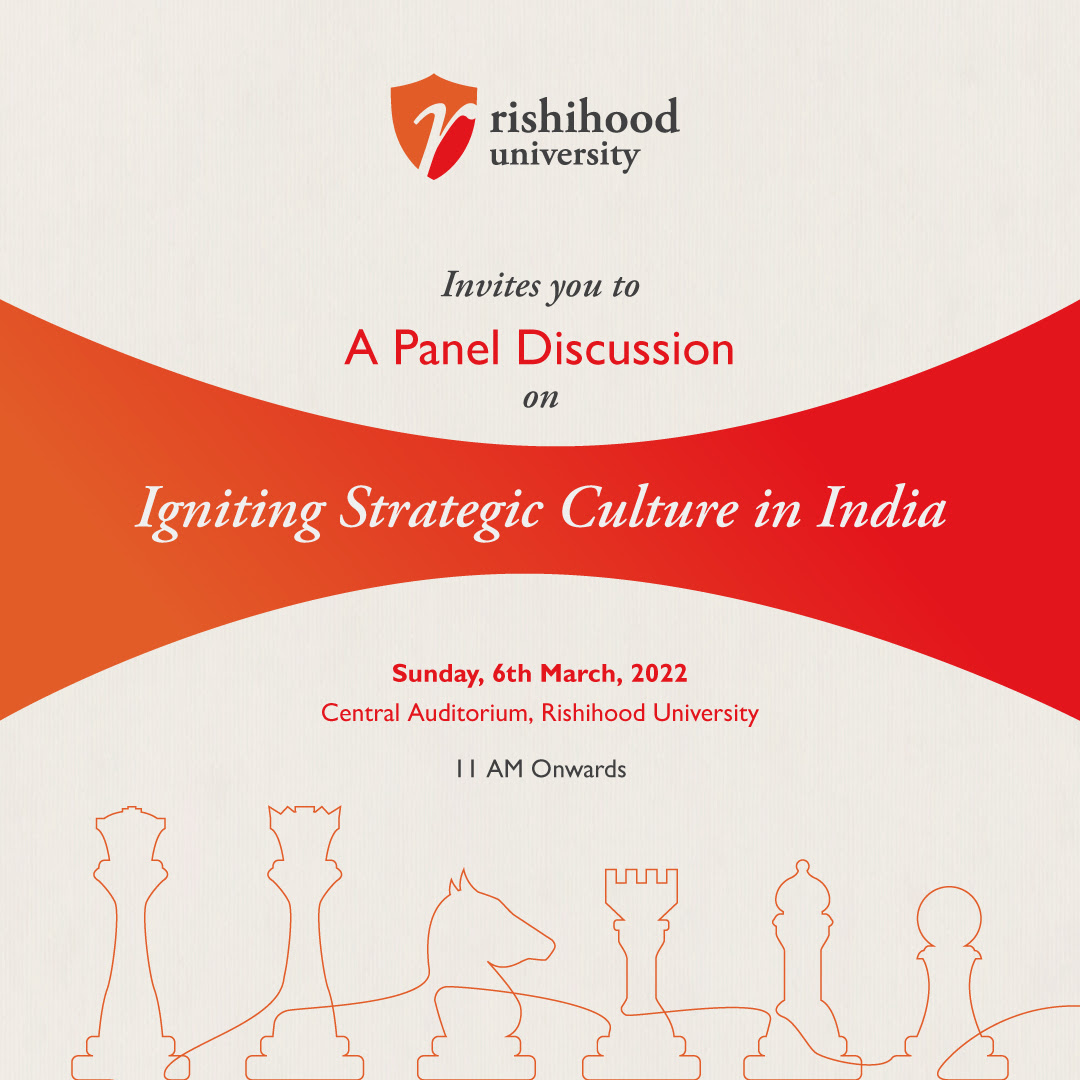The Indian subcontinent is a diverse land of culture, a product of multiple negotiations and contracts, and historical institutions of civilizational knowledge. With its unique history of war and peace, it can most definitely offer scholars with non-western international relations perspectives.
A dominant perspective in the study of international politics has been the realist approach that focuses on concepts such as capabilities and balance of power. However, it should also be recognized that the identities of nation-states also play an important role in defining their external engagement. The identity of a nation-state is a consequence of multiple societal conversations and larger cultural frameworks.
Join us for a Panel Discussion on Igniting Strategic Culture in India on Sunday, 6th March 2022 from 11 AM at Rishihood University.
Register Here: https://rishihood.edu.in/igniting-strategic-culture-in-india/


